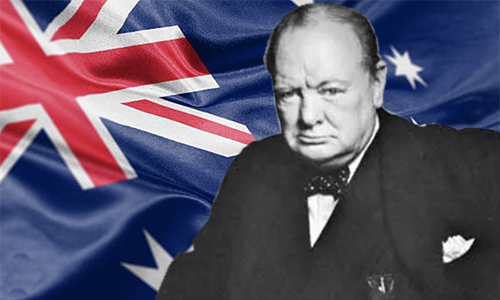At the 2019 general election, the Tories won eight seats out of eleven in Nottinghamshire, but now the political map of the county is dominated by red. Only two of those 2019 Conservatives survived last week’s brutal cull. Both did so by running against Rishi Sunak’s version of Toryism rather than for it. Lee Anderson, having had the Tory whip removed by Sunak, got re-elected in Ashfield in the colours of Reform. Meanwhile, in nearby Newark, Robert Jenrick defied MRP surveys which predicted he was a goner by withstanding a strong Labour challenge and hanging on with a majority of more than 3,000.
Jenrick was teased about his noticeable weight loss
Jenrick was able to do so because the Reform vote share was significantly smaller in his seat than in neighbouring ones. And that didn’t happen by accident.
When he resigned as immigration minister last December to free himself to fight for tougher policies on that issue, I wrote in these pages that it marked a significant moment in Tory politics: an astute, able and ambitious MP had made a calculation about the long-term future.
Vindicated by the outcome of his party’s gruesome contact with the electorate last week, Jenrick now steps into that future with his authority enhanced. He is very probably in a duel with Kemi Badenoch to be the right-wing candidate who makes it to the final round of the impending Tory leadership contest. It seems unlikely the Right is sufficiently dominant in the rump of 121 remaining MPs to get both in front of the membership, but very likely that whichever of them makes the cut will go on to win the race.
Badenoch loyally stayed with Team Rishi till the end, limiting her opportunities to differentiate herself from The Biggest Loser but also becoming seen as the right-winger that the Tory Left thinks it could live with. Jenrick, by contrast, used his freedom on the back benches and a column in the Daily Telegraph to set out an entire new prospectus for his party.
He is clear that the Tories must now campaign to leave the European Convention on Human Rights so border control can be restored, to return rigour and sternness to the criminal justice system – and most of all to radically reduce the overall volume of legal immigration.
On this final point, he has shown a further measure of political courage by already extending the Overton window of politics rightwards. Nobody has done more than Jenrick over the last six months to legitimise debate around the different impacts of immigration from different countries.
He has done this by deploying data, along with his friend Neil O’Brien – another East Midlands MP who scraped home last week – about differential outcomes by country of origin when it comes to metrics such as benefits dependency, tax contributions and social housing take-up.
And unlike Suella Braverman, his former boss at the Home Office and Cambridge contemporary from back in the day, his political method is to make his points in carefully calibrated language that is hard for opponents to depict as extremist.
When he was a frontbencher, Jenrick was rated as one of the best communicators at the government’s disposal and a safe bet to put on the Today programme on a sticky wicket.
Jenrick’s star has been in the ascendant throughout this year
It was obvious from the moment he resigned – soon after James Cleverly was appointed Home Secretary over his head upon the sacking of Braverman – that a leadership bid would ultimately follow. He was teased about the giveaways of noticeable weight loss and a new tough-guy haircut by Camilla Tominey on her Sunday morning GB News show in January and no denial ensued.
In right-wing social media circles, Jenrick’s star has been in the ascendant throughout this year even as Badenoch’s has dimmed a little amid suggestions – probably groundless – that she is on the fringes of a centrist cabal deemed to have run the party into the ground.
Yet Badenoch is undeniably compelling where Jenrick is still working his way up from merely being plausible. In his early years in Parliament, he was seen as so much a Conservative from Cameronian central casting that he was given the nickname Robert Generic.
Suddenly he is the well-schooled fundamentalist of traditional Toryism, self-billed as ‘somebody who believes in secure borders, in our sovereignty, in low taxes, in the family, in strong defence.’
Already pitching as the man who can ward off the Light Blue peril of Reform, he has issued a rejoinder to Nigel Farage’s wounding taunt that the Tories are a broad church with no religion, saying of his party: ‘There is a long history of the Conservative Party being a big tent, but it’s got to be a strong tent. It’s got to be a broad church with a creed, something we can unite around.’
He knows that someone to unite around is just as important. And he aims to give Kemi a run for her money.










